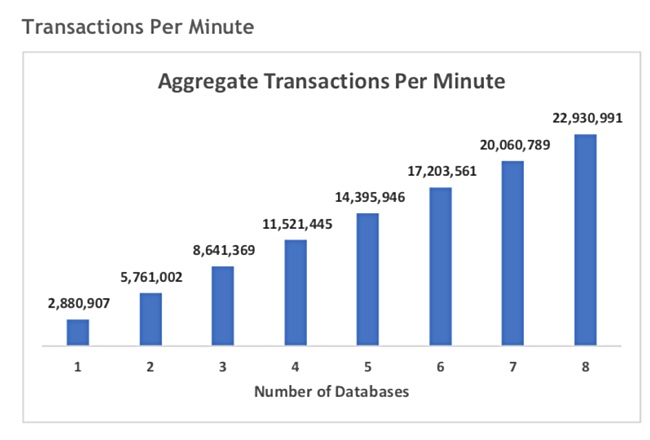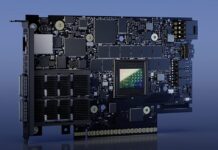Formulus Black, the company formerly known as Symbolic IO, said its Forsa software pushes Microsoft SQL Server to run 129 times faster than standard operating systems.
In a recent benchmark test, the company executed 22.9 million SQL transactions per minute and achieved sub-microsecond latency on a single commodity server.
It modestly dubbed the results as “Platinum CPU class database performance on Silver-CPU class servers”.
Formulus Black does this with – buzzword alert – Forsa dynamically computed bit marker in-memory technology. In other words, Forsa enables applications to use memory as storage.
The company commissioned End Point Corporation, a software consultancy, to benchmark the performance of Microsoft SQL Server on a fairly ordinary X86 server.
The test machine spec was a Dell PowerEdge R740xd with dual Intel Silver 4114 CPUs (20 physical cores and 40 hyper-threaded), 768GB of memory, two 800GB PCIe SSDs and a 200GB SSD Boot Drive. Ubuntu Linux and Forsa were installed.
The SSD drives were not used and the databases were stored in memory on “LEMs” (Logical Extensions of Memory) created using Forsa. 650GB out of 768GB was set aside for LEMs, leaving the system with 128GB of memory. Results were obtained using HammerDB v3.1 with the TPC-C benchmark.

Bench press
In detail: “Test results include achieving over 22.9 million aggregate transactions per minute in host mode and over 5.1 million aggregate transactions per minute in a virtualized environment. Latency was 0.25ms, on average.”
End Point compared the results with publicly available benchmarks, including an October 2018 report by Principled Technologies that also tested a Dell PowerEdge R740xd. TPM and latency results achieved on Forsa are about 129x better (22.9 million TPM vs. 177,000 TPM).
The Dell server tested by Principled ran Red Hat Enterprise Linux 7.5 and Microsoft SQL Server.
End Point wrote: “While the Principled Technologies report used the DVD Store 2 benchmark and this report used HammerDB TPC-C benchmark, the key difference is of course attributed to running the database on SATA SSD’s vs. in memory on LEMs with Forsa.”
Josh Williams, a database specialist at End Point, said: “Because Forsa allows all data to persist in-memory all the time, applications, especially databases, can take advantage of the massively parallel processing capabilities of the memory channel and deliver levels of performance that cannot be achieved when data is stored in traditional mediums like SSDs, HDDs or over a SAN.”
Wayne Rickard, Formulus Black’s chief strategy and marketing officer, was cock-a-hoop: “Testing Forsa’s ability to achieve significant performance levels in SQL environments on a single mid-range server without tuning, shows that it is unmatchable by any SSD or other I/O-bound technology today.”
Download the performance report here (registration required.) It contains an email address for Josh Williams if you have follow-up questions.








